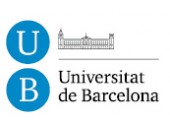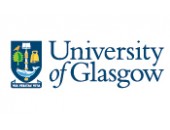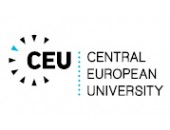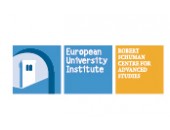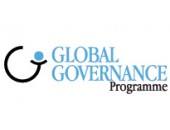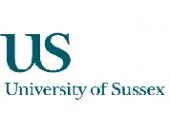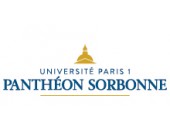GOLDSMITHS UNIVERSITY OF LONDON, UK – MÓNICA SASSATELLI
Monica Sassatelli is Senior Lecturer in the Department of Sociology at Goldsmiths, University of London. Previously she was a Research Fellow at Sussex University (2008-2010), working on the project Art Festivals and the European Public Culture (www.euro-festival.org). Before that she taught sociology in a number of Italian universities and held a post-doctoral Jean Monnet Fellowship at the European University Institute in Florence where she carried out research on Europeanization in culture and heritage. She is a cultural sociology specializing in the study of cultural institutions and events, with a focus on Europe and the urban dimension. Her publications include the monograph Becoming Europeans. Cultural identity and cultural policies (Palgrave, 2009) and the collection Festivals and the Cultural Public Sphere (co-edited with Gerard Delanty and Liana Giorgi, Routledge, 2011).
UNIVERSITY OF MELBOURNE, AUSTRALIA – NIKOS PAPASTERGIADIS
Nikos Papastergiadis is Professor in the School of Culture and Communication at the University of Melbourne and founder—with Scott McQuire—of the Spatial Aesthetics research cluster. He is Project Leader of the Australian Research Council Linkage Project, ‘Large Screens and the Transnational Public Sphere’, and Chief Investigator on two ARC Discovery Projects.He was educated at the University of Melbourne and the University of Cambridge. He has previously been Deputy Director of the Australia Centre at the University of Melbourne, Head of the Centre for Ideas at the Victorian College of Arts, and lecturer in Sociology and recipient of the Simon Fellowship at the University of Manchester. Nikos has provided strategic consultancies for government agencies on issues relating to cultural identity and has worked in collaborative projects with artists and theorists of international repute. He was Advisor to Arts Council of England on International Residency Programs and for the Multicultural Arts Policy Advisory Committee, Minister for the Arts, Victoria.
UNIVERSITY OF MIAMI, USA – GEORGE YÚDICE
George Yúdice is Professor and Interim Chair at the Department of Modern Languages & Literatures and Professor at the Center for Latin American Studies. Currently he leads the Miami Observatory on Communication and Creative Industries (www.miamiobservatory.org) which tracks work in music, theater, audiovisual, culture-based urban revitalization, cultural networks throughout the Americas, and community-based projects in South Florida. He received his Ph.D. in Romance Languages from Princeton University (1977). His teaching includes critical theory, literary and cultural studies; his courses range from contemporary aesthetics and politics to urban imaginaries, to film recreations of literary works, Mapping Miami, and cultural policy in Latin America. His research and publications are mainly in the area of Latin American Cultural Studies, and in particular Cultural Policy Studies. Some of his books are Translation, with an introduction, of Imagined Globalization (2012, with Néstor García Canclini) and The Expediency of Culture: The Uses of Culture in the Global Era (2003) and Cultural Policy (2002, with Toby Miller).
LOUGHBOROUGH UNIVERSITY, UK – JIM MCGUIGAN
Jim McGuigan is a freelance researcher, writer and artist. He is also Emeritus Professor of Cultural Analysis at Loughborough University UK. Previously, he taught at Coventry, Leeds Trinity, Open and Wolverhampton Universities. He was a research officer at the Arts Council of GB and a script editor in the BBC TV Drama (Plays) Department. He has been a visiting scholar at, amongst others, the Universities of Bergen, Canberra, Canterbury (Christchurch NZ), Catalonia, Copenhagen, Eastern Finland, Izmir, Javaskyla, Rostock and IFK Vienna. He has delivered keynote addresses at conferences and guest lectures in Australia, Austria, Canada, Croatia, Finland, Germany, Ireland, Israel/Palestine, Norway as well as at various universities in Britain and elsewhere. He has served on the Art and Humanities Research Council and the European Commission. Jim’s main academic specialisms are in social theory, cultural studies and policy. He has published in many book collections and journals, including Cultural Studies, European Journal of Cultural Studies, International Journal of Cultural Policy, Keywords, New Left Review, New Statesman, Social Semiotics, Sociological Review and Sociology.
UNIVERSITY OF BERN, SWITZERLAND – DORIS WASTL-WALTER
Doris Wastl-Walter is Full Professor of Cultural Geography and Vice-Rectrice of the University of Bern. She has been working in the field of Border Studies since the 1980s, focusing on the construction of borders and their spatial and social meaning, in Gender Studies and on social and spatial representations. She has coordinated several research projects, among others, Transmig – integrating (trans) national migrants in transition states; SCOPES-Project (2010-2012), funded by the Swiss National Science Foundation (SNSF) as well as projects, funded by the EU. Among her publications highlights are two textbooks in Human Geography (2008, 2015) as co-editor as well as The Ashgate Research Companion to Border Studies (2011), Ashgate Publishing Limited, Farnham and recently together with Yvonne Riano et al. (2015): Shaping gender inequalities: critical moments and critical places. Equality, Diversity and Inclusion: An International Journal, Vol. 34, Issue 2, S. 155 – 167. She has edited the “Border Regions Studies” by Ashgate and Co-edited of the “gender wissen” series by the eFeF Verlag.
UNIVERSITY OF CRETE, GREECE – MARIA KOUSIS
Maria Kousis is Professor of Sociology (Development and Environment) in the Department of Sociology, School of Social Sciences, University of Crete. She obteined her Ph.D. (1984) in Sociology in the University of Michigan. Her work as researcher has been focused on Social Change, Movements, Economic & Political Contention, Environment, Society & Politics, Sustainable Development, Protest Even and Claims Analysis, Bioethics and Society, Tourism, Rural Societies & Social Change, Southern Europe and Mediterranean Societies. Between 2010-2013 she was visiting Professor on “Tourism & Environmental Movements”at the University of London. Recently she has been the Project local coordinator of Mediterranean Environment, Networks and Actions linked to «Mediterranean Voices: Oral History and Cultural Practices in Mediterranean Cities» (2007-2012, European Commission, Euromed Heritage II). She has been Board Member in the Research Committee ‘Environment and Society’ (RC24, 2006-2010) of the International Sociological Association and Member of the Committee for the Frederick H. Buttel International Award for Distinguished Scholarship in Environmental Sociology.
ADAM MICKIEWICZ UNIVERSITY, POLAND – MICHAL BUCHOWSKI
Michal Buchowski is Professor and Head at the Department of Ethnology and Cultural Anthropology at the Adam Mickiewicz University in Poznan, and holder of the Chair for Comparative Central European Studies at the European University Viadrina in Frankfurt/O. He lectured as a Visiting Professor at Rutgers, Columbia and Warsaw Universities, and held several scholarships (Fulbright, Humboldt, Kosciuszko, among others). His scientific interests comprise anthropological theories, postsocialism, migration and multiculturalism. He has published more than 170 scientific articles and ten books, among which: Reluctant Capitalists (1997), The Rational Other (1997), Rethinking Transformation (2001) and Polish Ethnology: Histories and Affinities (2012). He also co-edited thirteen volumes, such as Poland Beyond Communism (2001), Main Issues in Social Anthropology (2014) and Rethinking Ethnography in Central Europe (2015). He served as President of the European Association of Social Anthropologists and chair of World Council of Anthropological Associations. Currently he is president of Polish Ethnological Society.
UNIVERSITY OF STRASBOURG (MISHA), FRANCE – VINCENT DUBOIS
incent Dubois is a sociologist and political scientist and Professor at the University of Strasbourg, France (Institute for Political Studies). He belongs to the SAGE research unit and is a fellow at the University of Strasbourg Institute for Advanced Study for the academic years 2014-16. He is a former member of the Institut Universitaire de France (2007-2012) and was a Florence Gould member at the Institute for advanced study in Princeton NJ, USA, in 2012-13. His research fields include cultural sociology and policy, language policy, poverty and welfare and more generally sociological approach to public policy. In addition to numerous papers in scientific journals such as Poetics, Cultural Sociology, International Journal of Cultural Policy, his publications on cultural issues include Culture as a Vocation (Routledge, 2015), The Sociology of Wind Bands (Ashgate, 2013), La politique culturelle (Belin, 2012), Le politique, l’artiste et le gestionnaire (Croquant, 2012).
UNIVERSITY OF AMSTERDAM, THE NETHERLANDS – YVONNE DONDERS
Yvonne Donders is Professor of International Law and Cultural Diversity at the University of Amsterdam. Her research focuses on the relationship between international human rights law and cultural diversity, in particular the question of how and to what extent cultural diversity between and within states is or can be reflected in the international human rights system. She teaches (international) human rights law. Prior to this post, Prof. Donders worked as a Programme Specialist at UNESCO’s Human Rights Department. Prof. Donders is also member of the Dutch National Commission for UNESCO, member of the Human Rights Committee of the Advisory Council on International Affairs, member of Editorial Board of the Netherlands Quarterly of Human Rights and member of the European Expert Network on Culture. Her areas of expertise are economic, social and cultural rights; access to culture; participation in culture; cultural diversity and human rights.
BELGRADE UNIVERSITY OF ARTS AND UNESCO CHAIR, SERBIA – MILENA DRAGICEVIC-SESIC
Milena Dragicevic-Sesic is a professor of cultural policy and cultural management and former president of the University of Arts, Belgrade, where she now holds the UNESCO Chair in Cultural Policy and Management. She received master’s degrees in Theater Studies (Paris VIII), Cultural policy (University of Arts Belgrade) and a PhD in Sociology of Culture (University of Belgrade). Her research interest cover wide scope of topics in cultural and heritage management, leadership and enterpreneurship, cultural policies, urban policies, cultural and media studies. Milena is the author of 15 books and more than 150 essays, translated in 17 languages. She has been editor of numerous journals and book series. She works as an expert in cultural policy and management for the EU, European Cultural Foundation, the Council of Europe, UNESCO, Foundation Marcel Hicter, Pro Helvetia, and the British Council. She has guest lectured at numerous universities and in 2002 she received the Commandeur dans l`Ordre des Palmes Academiques awarded by the Ministry of National Education and Research of France.
CATEDRA UNESCO, UNIVERSITY OF GIRONA, SPAIN – ALFONS MARTINELL SEMPERE
Alfons Martinell Sempere is currently the Director of the UNESCO Chair, “Cultural Policies and Cooperation”, professor and researcher at the University of Girona. He is Doctor of Pedagogy from the University of Girona, BA in Philosophy from the Autonoma University of Barcelona and Primary Teacher by the University of Barcelona. He is an expert in Cultural Managers Training, Cultural Cooperation and Development, Regional Cultural Policies and Culture and Education. From 1980 to 1992 he was City Administration Technician specializing in Culture and Education in the city of Girona in different roles. He was also the President of INTERARTS Foundation in Barcelona (1995 – 2004) and Academic Director of the Euro-American Campus on Cultural Cooperation conducted in Barcelona (2000), Cartagena de Indias – Colombia (2002), Seville (2003) and Buenos Aires (2009) organized by the Organization of American States and Interarts. Between 2004 and 2008 was the Director General of Cultural and Scientific Relations of the Spanish Agency for International Cooperation (AECID). He has published books, articles and papers in the fields of cultural management, cultural policy, culture and development, international cultural cooperation, education, etc.
SOCIAL SCIENCIES INSTITUT, UNIVERSITY OF LISBON, PORTUGAL – JOSÉ LUIS GARCÍA
José Luis García leads the Observatório das Actividades Culturais (Observatory of Cultural Activities) a non-profit Association whose founding members are the Portuguese Ministry of Culture, the Social Sciences Institute of the University of Lisbon (ICS-UL) and the National Statistic Institute (INE). The main ICS research subject areas are the formation of the contemporary world; the study of citizenship and democratic institutions; the problem of sustainability; social changes and individual action in the context of the family, lifestyles and schooling; and issues concerning identity, migration and religion. Garcia received his Ph.D in Social Sciences (2004) and since 1998 he is a research fellow with tenure at Instituto de Ciências Sociais, Universidade de Lisboa (ICS-UL). Garcia has held lectureships at various universities, including, among others, ISCTE-IUL (1990-2011), Universidade de São Paulo, Brazil (2007; 2009; 2011). He was also visiting scholar at the Communication Studies Department, University of Iowa, USA (2010). His research interests focus mainly on social, communicative, ecological, ethical, and political implications derived from convergence processes between contemporary economy and the technological-scientific field.
UNIVERSITY OF SANTIAGO DE COMPOSTELA, SPAIN – RAMÓN MAIZ SUAREZ
Ramon Maiz is professor of Political Science at the University of Santiago de Compostela (Spain). His main fields of research are comparative nationalist and ethnic mobilizations and political theory. He has published recently in journals as Regional and Federal Studies, Nationalism and Ethnic Politics, Journal of Political Ideologies, Studies in Ethnicity and Nationalism and Nations and Nationalism. Some of his books are: The Construction of Europe, Democracy, and Globalization. USC. 2001; Democracy, Nationalism & Multiculturalism (coedited with Ferran Requejo) Routledge: London, 2004; Ethnicité et Politique (coedited with Jean Tournon) L’Harmattan: Paris, 2006; The Inner Frontier Bruxelles: Frank Cass, 2013. He is the director of the Research Group in Politics at the University of Santiago de Compostela, member of the board of the IPSA Standing Committee on Ethnicity and Politics, member of academic board of FLACSO (SPAIN) and coordinates, with Michael Keating, the Scotland- Galicia- Wales Network On Devolution. He is member of the editorial board of Nationalism and Ethnic Politics and Pôle Sud.
UNIVERSITY ANTONIO DE NEBRIJA, SPAIN – ARTURO RUBIO AROSTEGUI
Arturo Rubio Arostegui’s professional career has been developed exclusively in the field of culture, both in arts Management in private and public sectors. He is professor at University (since 2002 Rey Juan Carlos University and (2009)Antonio de Nebrija University). In the field of research, he obtained in 2003 the award of the Ministry of Public Administration of the doctoral thesis (La política cultural de los Gobiernos Socialistas: 1982-1996) (Trea, Publisher). Research in the arts and culture includes different multidisciplinary approaches: cultural policy and cultural institutions, sociology of the arts, also educational and methodological approaches to research in the arts. Since September 2015 Rubio is the Vice Chancellor for Research at Antonio de Nebrija University.
UNIVERSITY OF PORTO, PORTUGAL – AUGUSTO SANTOS SILVA
Augusto Santos Silva is a Portuguese sociologist and also a political activist. He is currently full professor at the Faculty of Economics and researcher at the Institute of Sociology in the University of Porto. He holds a Ph.D. in Sociology from the ISCTE – University Institute of Lisbon (ISCTE-IUL). His main research areas are the epistemology and methodology of social sciences, sociology of arts and culture, and political theory. He has held several public and political offices, among others, Member of the Parliament (2002-2011), Minister of Education (2000-2001), Minister of Culture (2001-2002), Minister of Parliamentary Affairs (2005-2009) and Minister of National Defence (2009-2011). He has published several books and scientific articles. Currently, he coordinates a project on the representation of Portuguese identity in contemporary literature, cinema and popular music, financed by the Gulbenkian Foundation.
UNIVERSITY OF TRES DE FEBRERO, ARGENTINA – ENRIQUE VALIENTE
Enrique Valiente is currently the Coordinator of the studies in arts and culture management at the University Tres de Febrero, a pioneer and leader institution in research and education in the field of arts and culture in Argentina. Since 2012 is the Academic Director of the UNESCO Chair in Cultural Tourist (UNESCO-UNTREF). He is a sociologist specialized in Sociology of Culture and University Management. His research interests are focused in the sociology of arts and sociology of culture, fields in which he has led several research projects. He is a member of numerous Committes, Boards and Official Programs in the scientific and education area, among others, he is Member of the National Commission for University Evaluation and Accreditation (CONEAU-Argentina), Coordinator of the Programs “Doctorar” and “Formarte” promoted by the Ministry of Education. Between 2005-2012 he has been Chair of Deans of Faculties of Social and Human Sciences Council of Argentina. He has also been advisor in the Education Commission (Nation’s Chamber of Deputies) and member of the Training Team in cultural management of the Ministry of Culture and the Ministry of Education (Argentina).
UNIVERSITY OF MONTPELLIER, FRANCE – EMMANUEL NÉGRIER
Emmanuel Négrier is a Senior Research Fellow at National Center for Scientific Research (CNRS) in political science and a member of CEPEL, University of Montpellier. His research interests include comparative cultural policies, cultural diversity and cultural pluralism, local and regional policies, and relationship between cultural policies and politics. He has been a visiting researcher at the University of Barcelona from 2002 to 2004. Other themes covered within his publications include festivals, cultural policy in Spain, political rescaling and culture. Since 1994, he has published several books and articles dedicated to cultural policy analysis; among others: Les publics des festivals, Paris: Michel de Maule 2010 (dir. with A.Djakouane & M.Jourda); Un territoire du rock. Le Public des Eurockéennes de Belfort, Paris : L’Harmattan 2012 (with A.Djakouane & J.D.Collin); Music Festivals: a changing world, Paris : Ed. Michel de Maule 2013, coordination with Lluis Bonet & Michel Guérin; Les Musiques du monde et leur(s) public(s), Marseille: Le Mot et le Reste, 2014.
LEUPHANA UNIVERSITY LÜNEBURG, GERMANY – VOLKER KIRCHBERG
Volker Kirchberg is Professor for Cultural Organization and Communication at Leuphana University Lüneburg, Faculty of Cultural Studies. His main research fields are empirical sociology of arts and culture, organizational sociology (for museums), issues of cultural communication and outreach (by museums), and urban sociology (especially regarding the effects of artists). From 2006 to 2010 he was director of the Leuphana Institute of Cultural Theory, Research and the Arts; from 2010 to 2012 he was vice dean for research of the Leuphana Cultural Studies Faculty. Since 2015 he is director of the Leuphana Institute of Sociology and Cultural Organization. In addition, he has been board member or section head of several international associations. Apart from his interests in the sociology of the arts and cities he looks at the interfaces of cities and cultural sustainability. His social empirical interests are focused on quantitative museum visitor research, representative surveys on cultural consumption, network research, and qualitative studies of the arts regarding effects for urban development.
UNIVERSITY OF BARCELONA, SPAIN / TRANSART INSTITUTE, PLYMOUTH UNIVERSITY, UK – HERMAN BASHIRON MENDOLICCHIO
Herman Bashiron Mendolicchio holds an International PhD in “Art History, Theory and Criticism” from the University of Barcelona. He is a faculty member at Transart Institute (NY-Berlin) and has worked as a Postdoctoral Visiting Researcher at United Nations University – Institute on Globalization, Culture and Mobility (UNU-GCM). He is invited Professor of the Cultural Management Programme of the University of Barcelona. His current lines of research involve the subjects of intercultural processes, globalization, participation and mobility in contemporary art and cultural policies, the interactions between artistic, educational, media and cultural practices in the Mediterranean and the cultural cooperation between Asia and Europe. He has participated in several international conferences and developed projects and research residencies in Europe, Asia, USA and the Middle East. As an art critic, editor and independent curator he collaborates with international organizations and institutions and writes extensively for several magazines and journals.
UNIVERSITY TOR VERGATA, ITALY – PIETRO VERENI
Pietro Vereni is currently associate professor of cultural anthropology at Università di Roma Tor Vergata and contract professor at Trinity College – Rome Campus. He earned a PhD in anthropology in 1998 doing fieldwork in Western Greek Macedonia. He’s also done fieldwork (1998-1999) between Northern Ireland and the Republic of Ireland when he was research assistant at the Queen’s University of Belfast. He’s now working on fatherhood and globalization in Rome. Among his publications: “Os Ellin Makedonas. Autobiography, Memory and National Identity in Western Greek Macedonia” (2000); Vite di confine. Etnicità e nazionalismo nella Macedonia occidentale greca (2004), Identità catodiche. Rappresentazioni mediatiche di appartenenze collettive (2008), “Fieldwork in Pandora. What does Anthropology have to do with a Blockbuster?”, Paradigmata. Zeitschrift für Menschen und Diskurse (2010); “Foreign Pupils, Bad Citizens. The Public Construction of Difference in a Roman School”, (2014).
UNIVERSITY OF NEWCASTLE, UK – STELIOS LEKAKIS
Stelios Lekakis studied classical archaeology at the University of Athens and after his MA studies (UCL 2005, Managing Archaeological Sites) he worked as a consultant in Greece, focusing on sustainable strategies in heritage management and the role of local communities, thematics of his PhD (University of Athens 2013). He works with NGOs (he is a founding member of MONUMENTA and the project manager of the “Monuments at risk” programme of Elliniki Etairia) and university departments on various cultural informatics projects, heritage management projects and excavations. He is currenlty a post-doc researcher (MSCA-IF) at the McCord Centre-Newcastle University working on the concepts of heritage management, landscape assessment and characterisation.
UNIVERSITY OF NEWCASTLE, UK – CHRISTOPHER WHITEHEAD
Professor Christopher Whitehead is co-ordinator of the Critical Heritages (CoHERE): performing and representing identities in Europe Horizon 2020 Project, which explores the ways in which identities in Europe are constructed through heritage representations and performances that connect to ideas of place, history, tradition and belonging. He is Professor of Museology at Newcastle University (UK) and Professor II of Museology and Heritage Studies at University of Oslo (NO). He has a background in Art History and Curatorship, but has since published numerous books and articles in the fields of museum history, interpretation, knowledge construction, place and identity, cultural memory and museums and migration.
UNIVERSITY OF EXETER, UK – CHARLOTTE WAELDE
Professor Charlotte Waelde has worked within the intellectual property law field for the past 25 years. In recent years she has specialised in copyright, digitisation and cultural heritage. Charlotte’s focus is on the interface between intellectual property law and changing technologies, the changes in the law wrought by those technologies, and the impact that those changes have on the way that the law is both perceived and used by the affected communities. Her work explores ways in which the law may be better calibrated to meet the needs of stakeholders. From this base Charlotte’s research reaches out into other domains such as human rights, competition law, international private law and the regulation and promotion of new technologies more generally.
NATIONAL MUSEUM OF HISTORY OF IMMIGRATION – RESEARCH CENTRE, FRANCE – MARIANNE AMAR
Marianne Amar is an historian and received her PhD from the Institut d’études politiques de Paris. Since 2005, she has served as head of the Research Department of the Musée National de l’Histoire de l’immigration (Paris). She is in charge of research programs, conferences and seminars at the Museum, and has curated several exhibitions. She plays an active role in the project “Université Paris Lumières”, a consortium including two Universities in Paris and several major cultural institutions. Since March 2013, she has been co-editor of the journal Diasporas. Migrations, Circulations, Histoire. Her latest works focus on three fields of research: social history of refugees in post-War Europe ; public uses of the past ; social history of photography in the context of migrations. In 2015, she coedited two books: Migrations. Perspectives scientifiques, médiations muséales (Presses Universitaires de Laval) and Mémoires des migrations et temps de l’histoire (Presses Universitaires F. Rabelais).
UNIVERSITY OF AMSTERDAM, THE NETHERLANDS – IHAB SALOUL
Dr. Ihab Saloul is Assistant Professor of Cultural Studies, Co-founding Director and Academic Coordinator of The Amsterdam School for Heritage, Memory and Material Culture (AHM) at the University of Amsterdam. He is a Visiting Professor of Culture and Politics at Free University Berlin, and a Senior Fellow at the network “Re-Configurations. History, Remembrance and Transformation Processes in the Middle East and North Africa” at Marburg University. Saloul was a NIAS Fellow at the Netherlands Institute for Advanced Study, and a EUME Fellow at the Institute for Advanced Study Berlin (Wissenschaftskolleg zu Berlin, WIKO). He is a book series editor of ‘Palgrave Studies in Cultural Heritage and Conflict’ at Palgrave Macmillan, and ‘Heritage and Memory Studies’ at Amsterdam University Press.
UNIVERSITY OF DALARNA, SWEDEN – TINA WIK
Tina Wik has had different proffessor’s posts, at the Royal Technical University, the Royal Institute of Art and now at the University of Dalarna as a professor in Building Technology focusing on research in Sustainable Architectural Conservation. She has a nine year experience from conservation works of war damaged monuments in Bosnia Herzegovina between 2000-08. She was also one of two international members of The Commission to Preserve National Monuments in Bosnia Herzegovina for six years after it was established.Tina has been a practicing architect and running her own office as Head of “Tina Wik Architects Design Studio” (www.tinawikarkitekter.se) since 1997 with both modern design work and architectural conservation projects. She designed the first multi-story housing projects in wood in Sweden. She has been involved in several modern wooden projects where new structural systems have been developed. She has won prizes for her modern wooden design, the Nora Parish House and Villa Alsmarker.
UNIVERSITY OF MODENA, ITALY – VITTORIO IERVESE
Vittorio Iervese is Assistant professor of Sociology of Cultural Processes at the University of Modena and Reggio Emilia (I), vice-director of Festival dei Popoli – International Documentary Film Festival (Florence – Italy) and member of the selection committees of other photographs and film festivals. His research activity has essentially focused on the following areas: Visual Culture, Conflict Management, Intercultural Communication, Social Participation, Sociology of Children, Cultural planning. He is currently coordinating SHARMED (Sharing Memories and Dialogue), an Erasmus+ project with the participation of children with/from migrant background. About Cultural Planning he has recently published: “Form is when the substance rises to the surface. Practices, Narratives and Autopoiesis of the Festival dei Popoli”. Journal of Cultural Management 2016/1.
LEUVEN UNIVERSITY, RAYMOND LEMAIRE CENTRE FOR CONSERVATION – KOENRAAD VAN BALEN
Koenraad van Balen is the director of the Raymond Lemaire Centre for Conservation, Leuven University (http://sprecomah.eu/rlicc/). He holds the UNESCO chair on Preventive Conservation, Monitoring and Maintenance and is a renowned expert in technical aspects of conservation and their embedment in conservation philosophy and practice. He is also member of various national and international organizations and scientific committees in the field of conservation. He coordinates the course “Building Materials and Conservation Techniques” of the Master of Conservation of Monuments and Sites at the Raymond Lemaire International Centre for Conservation at the KU Leuven.
EUROPEAN UNIVERSITY INSTITUTE, ITALY – HARVEY FEIGENBAUM
Harvey Feigenbaum is Robert Schuman Fellow at the European University Institute and Professor of Political Science at the George Washington University in Washington, DC. He holds degrees from the University of Virginia, Sciences Po, and the University of California, Los Angeles. Feigenbaum has served as a consultant to the US Department of State, the Royal Commission on Development Prospects for Canada, the Organization of American States, the National Science Foundation, and the Agence Nationale pour Recherche (France). Among his books are The Politics of Public Enterprise (Princeton), Shrinking the State(Cambridge), as well a many professional articles journals such as World Politics, Comparative Politics and Governance. He contributes a blog regularly to Le Monde Diplomatique. Feigenbaum appears often on radio and television in the US, Europe and Australia . His current research focuses on cultural diversity and the impact of Americanization on economics and politics abroad.
MIDDLESEX UNIVERSITY, UK – NICK DINES
Nick Dines is an urban anthropologist currently based in the Department of Criminology and Sociology at Middlesex University. He has previously held teaching positions at Roma Tre University and Suor Orsola Benincasa University in Naples and research fellow posts at a number of UK universities including University College London where he was co-investigator on the AHRC-funded project “Memory and Place in the Twentieth Century Italian City”. A member of the Association of Critical Heritage Studies since its inception in 2012, his research explores the social and cultural politics of heritage-making in Italian cities and southern Europe more broadly. Drawing on a long-term interest in international migration, he has recently started to work on the relationship between mobility and heritage in Euro-Mediterranean port cities. He is the author of the monograph Tuff City: Urban change and contested space in central Naples (Berghahn, 2012) and the editor of the 2016 themed section “Critical Ethnographies of Urban Heritage in the Western Mediterranean Region” in the International Journal of Heritage Studies.
POLITECNICO DI MILANO, ITALY – FRANCESCA LANZ
Francesca Lanz, Architect and PhD , she is Lecturer in Interior Architecture and Exhibition Design at the Department of Architecture and Urban Studies of Politecnico di Milano. Her research interests and skills are in interior architecture, museography, and heritage studies. Since 2006, she has been publishing and contributing to several national and international research and teaching activities in these fields, collaborating with different POLIMI departments. Among these, most recently, she has been involved as researcher and dissemination manager for the EU funded research projects MeLa: European Museums in an age of migrations (2011-2015) – serving also as Assistant Coordinator – and TRACES: Transmitting Contentious Cultural Heritages with the Arts (2016-2019).
ISTANBUL BILGI UNIVERSITY, TURKEY – ASU AKSOY
Asu Aksoy works at the İstanbul Bilgi University as a senior lecturer in culture management. She is the director of Cultural Policy and Management Research Centre (KPY) where research activities are undertaken in the fields of culture, arts and heritage management and policies. Prof.Aksoy worked in British universities, as a research fellow, on large-scale research programmes concerning transnationalism, migrations to Europe, media use among migrant communities and identity issues. After returning to Turkey in 2007, she worked as the international projects director of the arts and culture center of Bilgi University- santralistanbul. She has many publications in the areas of transnational media, migration and cultural identity, on urban culture of Istanbul, and on cultural policy and heritage management issues in Turkey. In 2012, she worked as the Istanbul curator for the 5th International Architecture Biennale Rotterdam, Making City. She has conducted various research projects as the director of KPY, the latest being the preparation of the heritage management plan for a historic district in Istanbul.
INSTITUTE OF LEISURE STUDIES. DEUSTO UNIVERSITY – CRISTINA ORTEGA
Cristina Ortega Nuere is the Principal Researcher of the Official Research Team of Leisure and Human Development of the University of Deusto (http://www.ocio.deusto.es/). Her area of specialization is cultural policies, and cultural management. She is also the Chair of ENCATC’s Policy Group Monitors of Culture that gather universities and stakeholders that are currently working on the development of new indicators and methodologies on the social impact of cultural and creative industries. Doctor in Leisure and Human Development, with a Master degree in Leisure Management, and specialized in Cultural Management, she graduated from the Faculty of Arts and Philosophy from the University of Deusto and completed her studies in London, Middlesex and at Westminster University. She is also Member of the Basque Council of Culture of the Basque Government.
RESEARCH TEAM: LEISURE & HUMAN DEVELOPMENT. DEUSTO UNIVERSITY – FERNANDO BAYÓN
Fernando Bayón is currently a researcher of the: Leisure and Human Development (Deusto University). PhD in Philosophy and Education Sciences, his current lines of Research are: leisure and human development; cultural memory forms of community and media communication; rethoric and social audiovisual languages; philosophy and literature; genealogy and challenges of European currency; construction of social link. The axes of his publications are related to human development, highlighting these areas: the interpretation of the crisis of European modernity by studying the relationship between philosophy and literature; theory and genesis of modernity and secularization; the construction of social ties and new challenges of public space: the contemporary city; etc.

